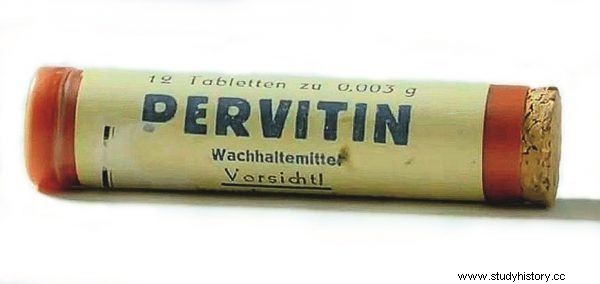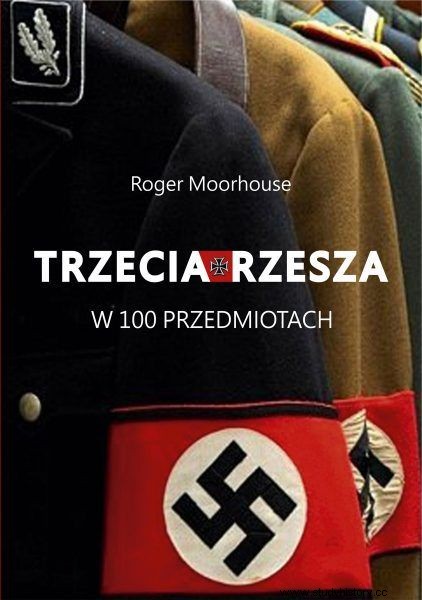According to some historians, the Blitzkrieg was driven as much by tanks and cars as it was by ... amphetamines. German soldiers swallowed pills containing this drug like candy. But could pervitin really help the Third Reich to win the war?
In mid-November 1939, a young Wehrmacht soldier wrote a letter from occupied Poland to his family in Cologne. In it he greeted his siblings and parents and asked them to send him "some pervitin".
It was an early, low-dose version of what we know today as methamphetamine hydrochloride, crystal or speed.
A remedy to refresh the mind and improve libido
At the 1936 Olympics, athletes successfully used the American benzedrine, and this spurred the German pharmaceutical company Temmler to research. In 1938 it introduced pervitin tablets on the German market advertised as a stimulant refreshing the mind and alleviating the effects of various ailments , from depression to decreased libido.

Pervitin became the unexpected engine of the Blitzkrieg.
The product quickly became popular and attracted the attention of the German military. In the summer of 1939, Dr. Otto Ranke of the military medical academy in Berlin began conducting experiments to test the benefits of Temmler's use by soldiers.
After tests on Wehrmacht drivers during the campaign in Poland, it was found that the effects of taking the drug under study resemble the effects of adrenaline:an increase in concentration and self-confidence, as well as a decrease in inhibitions and an increase in propensity to risk. The conclusion was obvious: such a stimulus would help Germany win the war .
In the spring and summer of 1940, the army received over 35 million tablets of pervitin, colloquially called "stukas". Soldiers were instructed to take one to two three-gram pills to stay active despite lack of sleep.
Priced soldiers
The effects of Wehrmacht use of such large amounts of methamphetamine are the subject of much speculation. It seems obvious that people who were alert, confident and willing to take risks, and who were able to act for three days without any interruption, had to turn out to be very effective fighters.

An interesting fact is a fragment of Roger Moorhouse's book "The Third Reich in 100 Objects", published by the Znak Horyzont publishing house.
Indeed, wartime accounts show the great importance of pervitin. The officer responsible for the supply of the 1st Armored Division during the French campaign had to provide the unit with 20,000 tablets of this drug and injected it with soldiers rushing indiscriminately west . Some modern commentators have gone even further, suggesting that the Blitzkrieg was powered as much by amphetamines as it was by tanks and cars.
The spell, however, did not last long. While the initial benefits of the drug were undeniable, military practitioners were increasingly worried about pervitin's side effects, growing resistance to its effects, and of course the increased number of accidents. As early as 1940, there were attempts to include the specific Temmler on the list of banned substances.
It is probably symptomatic that the soldier mentioned at the beginning asked his family to send stimulant tablets in November 1939, more than a month after the end of hostilities in Poland. Though the fighting had long since ceased, the letter's writer still needed another plot.
Source:
The above text originally appeared in Roger Moorhouse's book The Third Reich in 100 Objects , which was published by Znak Horyzont.
The title, illustrations with captions, boldface text, explanations in square brackets and subheadings come from the editors. The text has undergone some basic editing to introduce more frequent paragraph breaks.
Check where to buy "Third Reich in 100 items":
